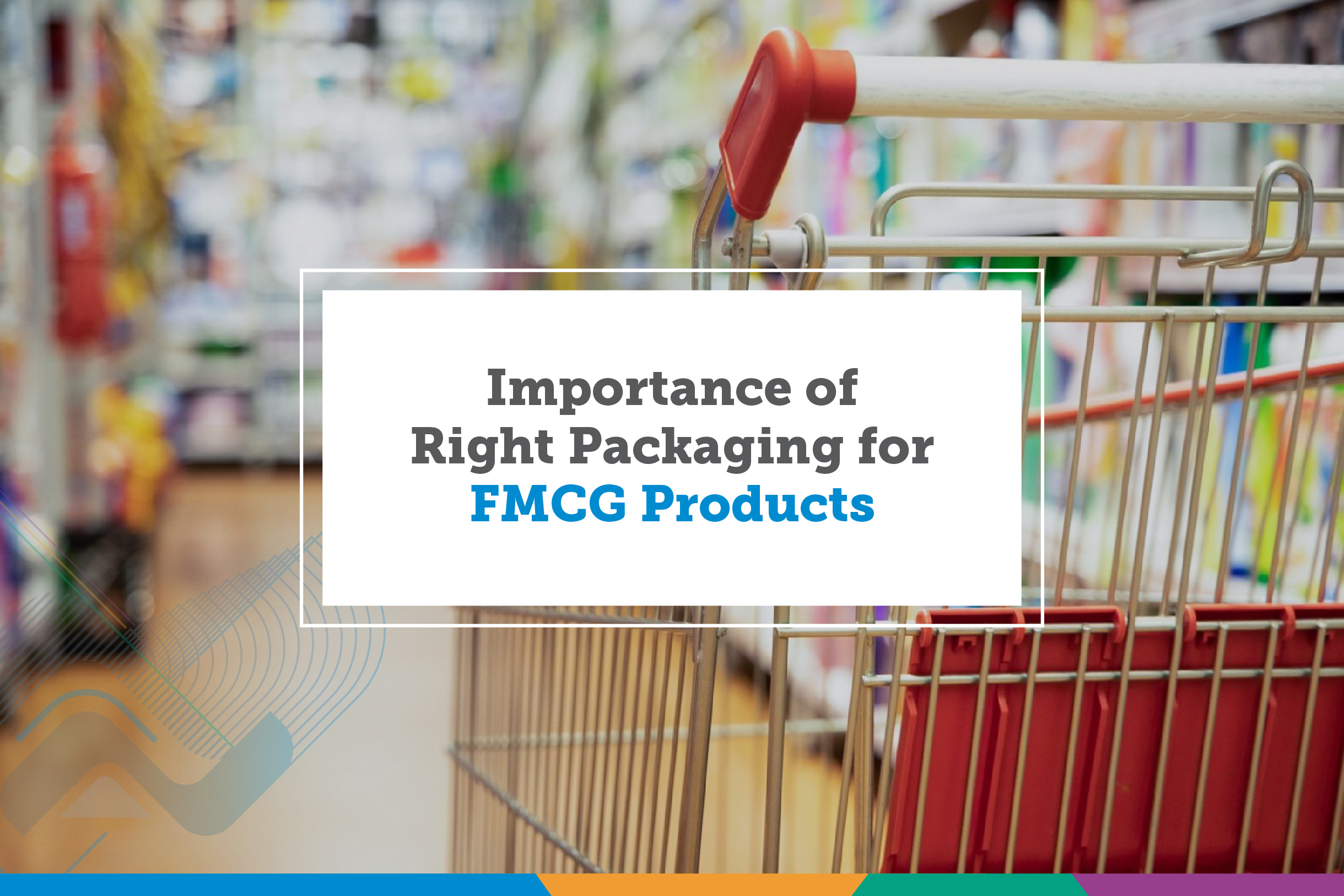
Importance of Right Packaging for FMCG Products
It’s an accepted fact that people judge by outward appearance, and nowhere is this more true that on the retail shelf. When it comes to buying behaviour in FMCG goods, consumers assess a product by its packaging.
After all, it’s the customer’s first interaction with the product. It is the first thing she sees and touches. Most of the time, for an undecided customer, it is this first impression that persuades or dissuades her from buying. No wonder, packaging is considered an important tool for marketing and brand building.
Purpose of Packaging
Marketing is much more than just your product’s face. Packaging serves many practical purposes:
Protection: This is the first and foremost purpose of packaging. It physically protects the goods from damage caused by exposure to sun, dust, temperature changes & contaminants; it protects against loss of nutritional value such as denaturing of proteins, oxidation of fats, etc. Packaging preserves the hygroscopic nature of the product.
Information: One of the important functions is to communicate product information, which can assist consumers in making their decisions effectively. An example of such significant information is food labeling. The trend towards healthier eating has highlighted the importance of labeling, which gives the consumers an opportunity to cautiously consider alternatives and make informed decisions. Moreover, evolving mandatory requirements demand certain information to be provided by the manufacturer. Information typically covers directions for use, storage instructions, ingredients, warnings, helpline information and any government required warnings.
Aesthetics: In the contemporary world of supermarkets and countless me-too products, packaging plays an integral role in helping it stand out and grab the buyer’s attention. Aesthetic value increases chances of it being accepted and tried by the consumer. Packaging is a platform to build brand, enhance aesthetics and protect the form and shape. We all know that a deformed or dented pack is unacceptable to consumers, and so many SKUs are sent back – causing losses to the manufacturer.
Transportation: Goods have to be transported, distributed, stored and warehoused during their journey from production to consumption. Packaging ensures durability and strength, so the goods can withstand transportation stress and make the process of handling goods more convenient for all parties involved.
Security: To ensure that there is no tampering with the goods packaging is crucial. The package of a product will secure the goods from any foreign elements or alterations. High-quality packages will reduce the risk of any pilferage.
Convenience: It’s the age of innovation in packaging – and breakthroughs that enhance convenience, usability and sustainability are always appreciated. Some examples are Kissan jam tubes that eliminate the need for spoons; Act-II popcorn microwave pack; Bru coffee containers with aroma lock.
However basic considerations still remain important – ease of opening, pouring and re-sealing, re-usability of containers, and easy disposability of discarded packs.
The challenge
FMCG, as the name spells out, are fast moving consumer goods and include non-durable household goods such as packaged foods, beverages, toiletries, over-the-counter drugs, and other consumables. In a world of over-crowded shelves, growing consumerism, increasing awareness of environmental concerns, rising need for convenience, deeper penetration into rural & remote markets, etc., FMCG manufacturers need to pay minute attention to their packaging. Weight, cost and availability of packaging material play a key role. Packaging needs to contain, preserve and transport the product with safety and durability. The challenge lies in providing packaging that fulfills all these considerations and impressing consumers while managing the cost so that it does not mark up the price for the end user – or neglect environmental concerns.
Conclusion
Nichrome, India’s leading provider of integrated packaging solutions offers a wide variety of automated packaging machines and end-to-end packaging systems for diverse FMCG products.
Nichrome has over 4 decades of experience and expertise in flexible packaging, and is continuously innovating to improve efficiency and sustainability of packaging machinery and packaging material. Recently, Nichrome is entering into joint ventures with packaging majors from Europe and South-east Asia to bring state-of-the-art packaging technology and a wide variety of packaging formats for food, pharma and other applications.
Nichrome partners with FMCG manufacturers and marketers to customize packaging solutions to suit individual product needs, optimizing cost and functionality.

0 comment